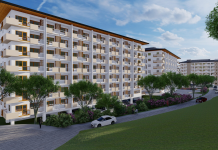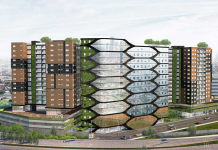
Several countries in Southeast Asia made notable improvements when it came to real estate transparency, according to a recent JLL report. The Global Real Estate Transparency Index 2020, a biannual research project from the consultancy, found that many countries in the region made significant progress over the past two years.
Thailand, Vietnam, the Philippines and Indonesia were among the top ten improved countries in regard to real estate transparency. Singapore was the region’s best performing country when it came to transparency and finished 15thglobally. Malaysia was the only other Southeast Asian country to make the Global Real Estate Transparency Index 2020’s top 30.
A total of 99 countries and territories around the world are ranked in the report. The final real estate transparency score is based on six factors: investment performance; market fundamentals; listed vehicles; regulatory and legal indices; transaction processes; and sustainability. This was the 11th edition of the report.
Vietnam continues to improve
The Vietnam property market continues to improve, and this was highlighted by the fact the country rose five places in the JLL report. As a result of the jump, Vietnam is now classified as “Semi-Transparent”. This is an important step for the country as more international investors look to enter the property market.
“Vietnam has made further progress on the regulatory front with government bodies tightening their oversight to ensure rules and regulations are being adhered to in areas such as land-use planning and lending standards. The country’s strong economic prospects have drawn significant interest from both occupiers and investors, and this has led to increased competition and service offerings from property management companies,” the report found.
The performance of Ho Chi Minh City, in particular, was cited as a key driver of real estate transparency in the country.
Thailand becomes transparent

Thailand made further progress and was placed in the “Transparent’ tier by JLL for the first time. According to the Global Real Estate Transparency Index 2020, greater regulatory enforcement of lending standards and requirements for more frequent property valuations in the Kingdom along with improved accounting standards were catalysts for the improvement.
“Moderate gains in Thailand have in part been driven by changes on the regulatory front, and this has led to it advancing into the lower reaches of the ‘Transparent’ tier alongside Mainland China’s leading cities. The national accounting body has adopted new measures to move Thailand’s GAAP more in line with international standards, while regulators have tightened up on some lending standards including requiring greater frequency of appraisals. In Bangkok, a new land-use plan is scheduled to be launched in 2020 after significant public consultation, and this has helped to improve the predictability of the changes to come,” the report explained.
The country is now ranked as the world’s 33rd most transparent real estate market and recorded the fifth highest improvement during the past two years.
Sustainability focus moves the Philippines forward
While the Philippines still trails both Thailand and Indonesia in real estate transparency, the country continues to become more transparent. Many developers have made strides in sustainability and these efforts were one of the reasons the country improved in the latest rankings.
“Sustainability has been a key contributor to gains achieved in the Philippines as developers put a renewed focus on this area. The number of green-certified buildings has been on the rise and the first non-bank issuance of a green bond took place early in 2020 by a local developer. Steps to digitize the land registry are also a positive stride, leading to better quality records and easier access,” the report points out.
Elsewhere in Asia
The Global Real Estate Transparency Index 2020 highlighted Indonesia as another country that made solid strides over the past two years. Meanwhile, Myanmar was the lowest ranked country in the region and 72nd globally.
Japan and Hong Kong scored highly once again and both countries are firmly entrenched in the “transparent” tier. The report added, “the improvements have been small, with the biggest advances recorded on the sustainability front as governments and industry players have placed a greater emphasis on health and well-being.”




















